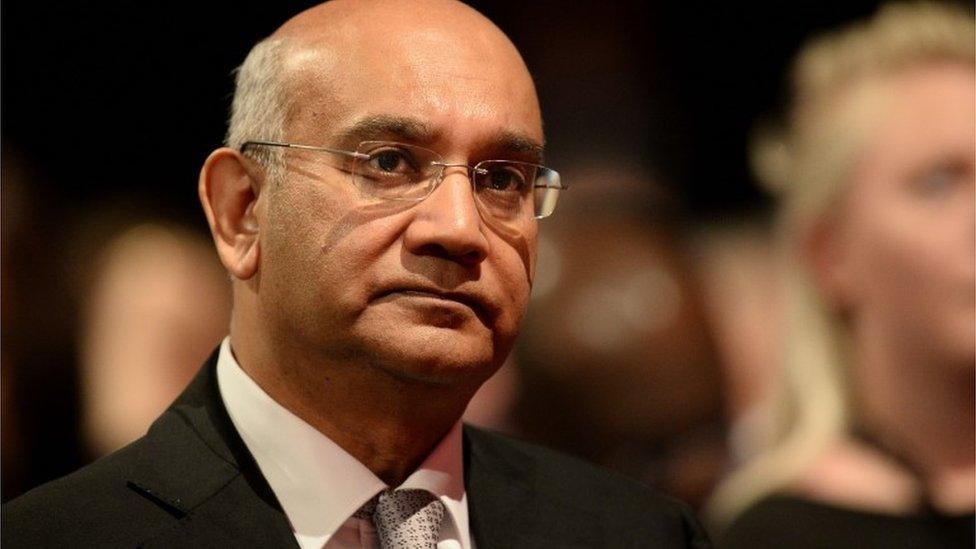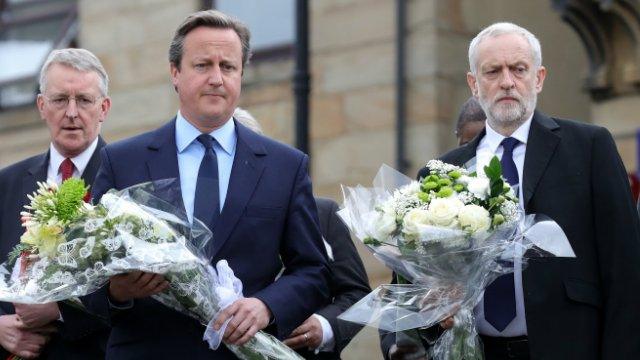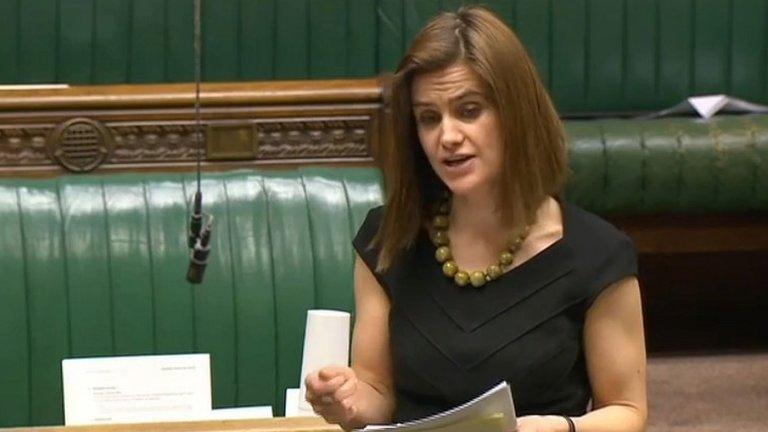Why MPs voted Labour's Keith Vaz on to Justice Committee
- Published

So far as most of the participants were concerned, it wasn't about Keith Vaz.
For most MPs, Monday's vote, which installed the former chair of the Home Affairs Select Committee as a member of the Justice Committee, was a routine rubber-stamping exercise.
The normal deal is that the political parties in the Commons choose the MPs who are nominated to their party quota on select committees, by their own internal process, and the other parties automatically approve their choice.
The argument is that if the parties start tinkering with each other's nominations, that way, madness lies. So no fan clubs were involved in the making of this particular appointment,
As the Conservative MP Sir Desmond Swayne noted in his blog, external:
"The vacancy on the Justice select committee was a Labour vacancy. It was a matter for the Labour Party to fill it. Whether I approved or disapproved of their choice, the choice was theirs to make. The ill-considered attempt by rogue colleagues to interfere with Labour's choice and overturn it, could have had disastrous consequences for all the other areas where 'give and take' are necessary to ensure the Parliament can function without always descending into an unseemly row. Had Labour voted to veto a Conservative choice for a select committee, I would have been incandescent with rage. Accordingly, I voted to uphold Labour's right to make its choice, whomsoever they had chosen."
The point here is that, Labour having nominated Mr Vaz, most of the MPs who voted regarded the choice as a matter for the Labour Party, and not something they should veto, whatever stories had appeared about his personal conduct. And this is the bit that attracts criticism from people outside the Westminster bubble - several MPs have told me they have received a number of angry emails asking why he was not blocked from joining the Justice Committee. As for Labour's internal process, Mr Vaz was one of two Labour MPs who put up for two Labour vacancies on the Justice Committee, so there does not seem to have been any contested election.
The main "rogue colleague" to use Mr Swayne's words, was the Conservative MP, Andrew Bridgen, a Leicestershire neighbour of Mr Vaz, who objected to his appointment and forced a vote, external - he argued:
"It is clear the Rt Hon Member for Leicester East [Mr Vaz] felt the need to resign from the Home Affairs Committee. I think it would be a huge mistake for this House now to place him on the Justice Committee, when he has so many questions to answer..."
He may have broken a strong Commons convention, but, procedurally, Mr Bridgen was entirely within his rights to raise objections - which is why Speaker Bercow slapped down the Opposition Chief Whip, Nick Brown, when he suggested the appointments were internal matters for individual party groups.
By the same token it would be in order for Keith Vaz to object, were Andrew Bridgen to be put up for appointment to a select committee.
The Speaker's difficulty was keeping Mr Bridgen from making further allegations about Mr Vaz in the Chamber, where they could have been reported with legal privilege, (which is another way of saying that Mr Vaz could not have sued newspapers or broadcasters who accurately reported something said in Parliament) and that led to some fairly robust exchanges and firm warnings.
Mr Vaz has already threatened to sue Mr Bridgen for "maliciously spreading false and highly defamatory scuttlebutt" about him. Meanwhile Mr Bridgen had asked the Speaker to persuade Mr Vaz to stand down from the Chair of the Home Affairs Committee; as the Speaker said in the debate "It is not the role of the Speaker of this House to persuade someone to step down as the Chair of a Committee, just because of suspicions that some people may have about him."
I wonder what will happen next.
- Published17 June 2016

- Published17 June 2016
